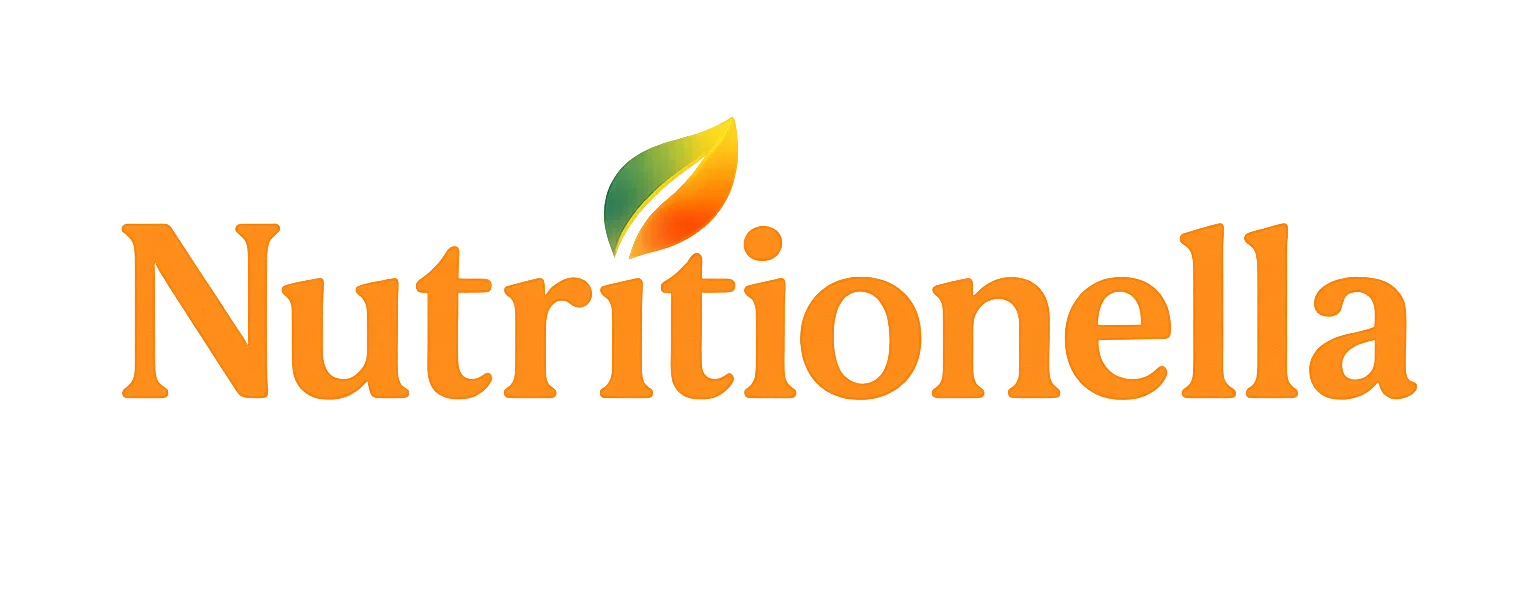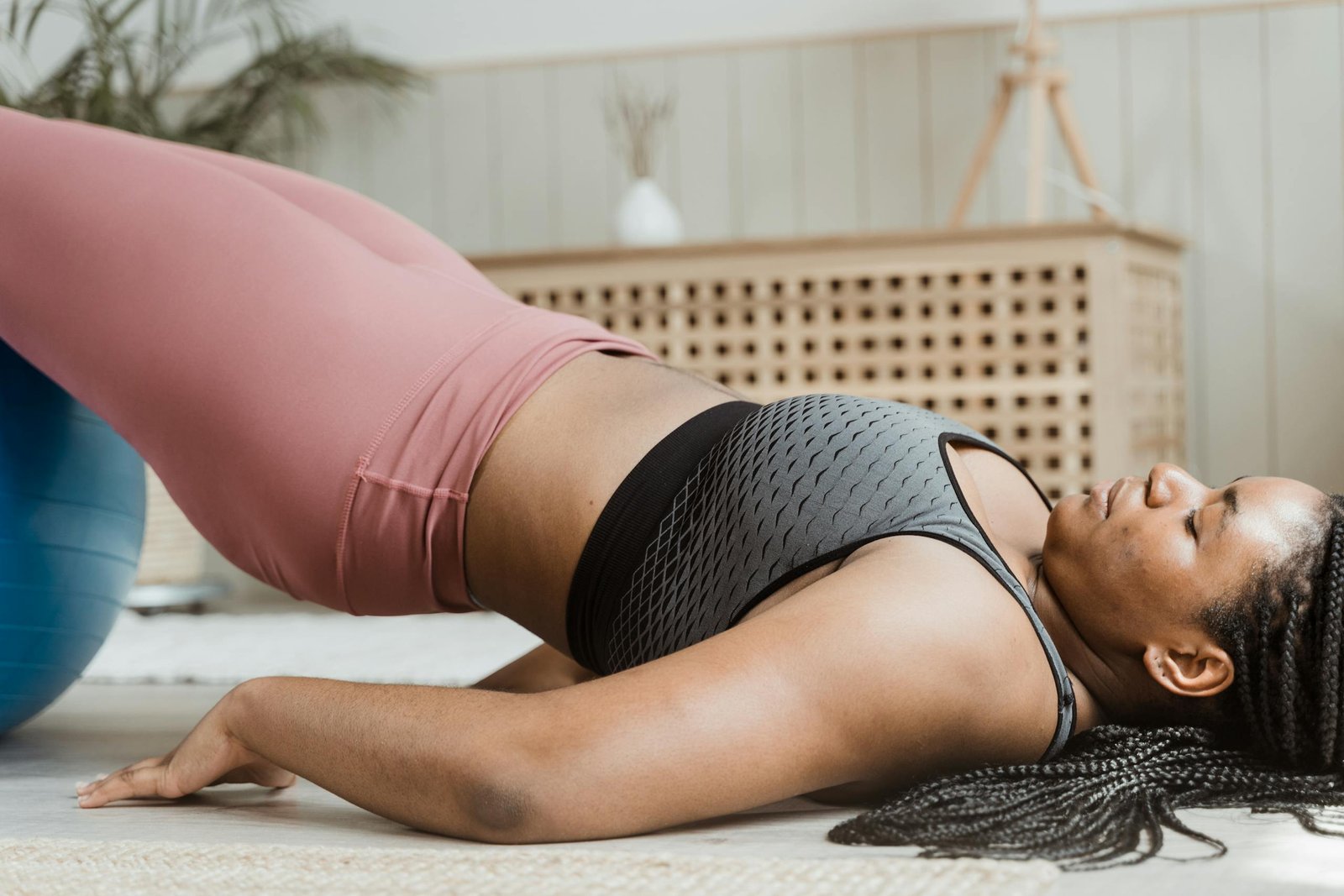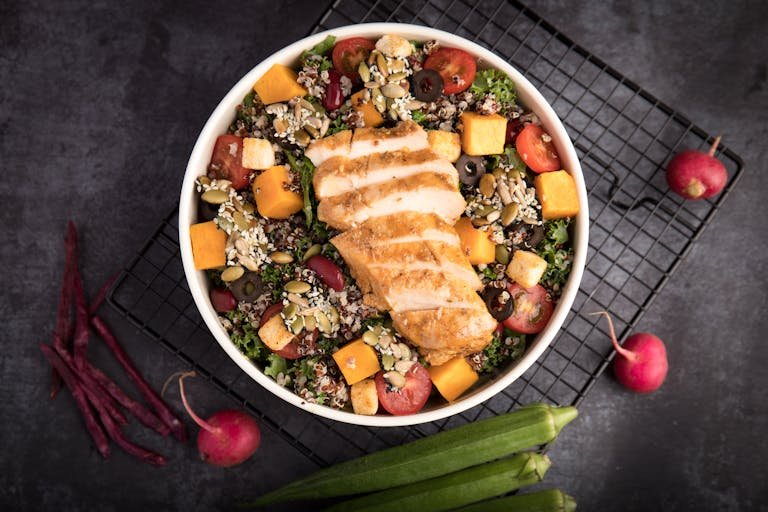Healthy Self Challenge: 30 Days To A Happier, Healthier YOU
Taking on a Healthy Self Challenge is a simple way for us to build better habits that improve our body, mind, and mood. It’s all about making small, manageable changes each day that add up to feeling healthier and more balanced.This kind of challenge doesn’t have to be tricky or overwhelming. It can include easy practices like moving our bodies more, eating nourishing food, and taking time for self-care.
Whether it’s cutting back on sugar, trying new workouts, or unplugging from screens, these steps help us reset and improve our well-being without tough rules.
What Is the Healthy Self Challenge?
A Healthy Self Challenge is a focused effort we take on to improve various parts of our health in just 30 days. It uses simple, everyday actions to create positive change in how we feel, think, and live.
We work on building habits that stick, all while growing physically and mentally. These challenges break down wellness into clear steps.
They help us gain confidence through small wins and guide us to pick the best plan for our own needs.
How 30-Day Challenges Work
A 30-day challenge sets a specific goal to work on for one month. Each day, we do a small task, like drinking more water, moving our bodies, or practicing mindfulness.
This helps us focus on one area without getting overwhelmed. The key is consistency.
Doing something every day, even if it’s just for a few minutes, builds new habits. Over time, these habits start to feel normal.
Challenges usually cover different wellness parts, like fitness, nutrition, self-care, and mental health. They break the process into easy goals, which keeps us motivated and on track.
Benefits of Taking On a Healthy Self Challenge
Taking on a Healthy Self Challenge can boost our discipline and motivation. Because the challenge lasts only 30 days, it feels doable, not like a lifelong commitment.
This short timeframe helps us focus and feel a sense of achievement each day we complete a task. We can see how small, positive changes add up to better energy, mood, and habits.
It also helps build confidence as we prove to ourselves that we can commit to something meaningful. The challenge encourages personal growth by pushing us to try new routines and ways of thinking.
Besides physical benefits, these challenges often improve mental clarity and emotional well-being.
Choosing the Right Challenge for You
Picking a Healthy Self Challenge that fits our lifestyle and goals is important. We should think about what part of our health we want to work on.
Do we want to be more active? Improve how we eat? Or maybe focus on mental health?
It’s best to choose a challenge with clear, simple steps that don’t feel overwhelming. For example, if we’re new to exercise, choosing a movement-focused challenge that starts small, like 15 minutes a day, can help us stick with it.
We also want to pick something enjoyable. If a challenge feels like a chore, it’s harder to keep going.
Think about challenges that fit our daily routine and give us room to adjust goals as we grow during the 30 days.
Setting Up Your Healthy Self Challenge
Starting a healthy self challenge means planning how we will set goals, keep consistent habits, and stay motivated. We need practical tools and a clear plan to stick with daily improvements that make a real difference.
Goal Setting and Tracking Progress
First, we choose clear, simple goals that fit our daily life. Instead of saying “eat healthier,” we can aim for “add one serving of vegetables to lunch every day.”
Setting small goals makes them easier to reach and keeps us from feeling overwhelmed. Tracking progress is key.
We can use a journal, an app, or even a calendar to check off each day we complete our goal. This helps us see our habit growing and gives a sense of accomplishment.
Breaking goals into weekly targets also helps. For example, start by exercising twice a week, then increase gradually.
This way, we build discipline step by step without burning out.
Building Consistency and Discipline
Consistency is what changes habits into a routine. We want to build daily habits that become second nature.
Setting a regular time for our challenge tasks helps, like walking after lunch or meditating before bed. Discipline is sticking to the plan even when we don’t feel like it.
To boost discipline, it helps to create reminders or pair the new habit with something we already do. For instance, practice gratitude during our morning coffee.
Sometimes we’ll miss a day. That’s normal.
The key is to jump back in the next day without overthinking it. Consistency, not perfection, moves us forward.
Staying Motivated with Visual Tools
Visual tools like vision boards or trackers can keep our motivation high. A vision board is a collection of images and words that represent our goals and why we want them.
Placing it somewhere visible reminds us of our purpose daily. Using a color-coded calendar or checklist turns progress into a visual game.
Watching the marked days add up can feel satisfying and push us to keep going. We can also set small rewards for milestones reached.
Treating ourselves to a favorite activity after a week of consistency keeps motivation alive and makes the challenge fun.
Physical Wellness: Move, Rest, and Thrive
Taking care of our bodies means moving regularly, resting well, and building healthy routines. We can start small with daily exercises, try fitness challenges, and create morning and evening habits that support our physical health.
These steps help us feel stronger, sleep better, and stay active.
Daily Fitness Routines for Beginners
Starting a daily fitness routine doesn’t have to be hard or time-consuming. We can begin with gentle stretching and light movement for 10 to 15 minutes.
This could be simple walks, easy bodyweight exercises like squats and lunges, or yoga poses to increase flexibility and strength. Even short, regular workouts help build endurance and improve our mood.
Remember to listen to our bodies and avoid pushing too hard. Hydrating before and after movement also supports recovery.
Simple activities like running or cycling can be added once we feel more comfortable. The goal is to move daily without feeling overwhelmed or sore.
30-Day Fitness Challenge Ideas
Fitness challenges help us build motivation and create lasting habits. We can choose challenges that fit our level and interests.
For example:
- Walk 10,000 steps each day.
- Try a new workout style every few days (like HIIT, dance, or swimming).
- Stretch every morning and evening for 20 minutes.
- Do strength training exercises three times a week.
Tracking progress is helpful. We can mark off each completed day to celebrate small wins.
These challenges push us gently to increase activity but focus on balance, so we don’t burn out.
Healthy Morning and Evening Habits
Our days start and end with routines that impact energy and sleep quality. A healthy morning routine might include stretching, drinking water, and a short walk to wake up the body.
In the evening, winding down is just as important. Limiting screen time and doing gentle stretches or meditation helps relax muscles and calm our mind before bed.
A consistent sleep schedule aiming for 7-8 hours supports muscle repair and overall wellness. By adding these habits, we set ourselves up to feel energized when awake and rested when it’s time to sleep.
Nourishing Your Body: Essential Nutrition Habits
Eating well means choosing foods that fuel us, planning meals wisely, and staying hydrated. These habits help keep our energy steady and our minds clear.
Simple steps like understanding what to eat, preparing meals ahead, and drinking enough water make a big difference.
Healthy Eating Basics for Lasting Change
We want to build habits that stick, so focusing on whole foods is key. That means lots of vegetables, fruits, whole grains, and lean proteins.
Cutting back on processed foods and sugary drinks helps our body work better. Mindful eating plays a big role, too.
Paying attention to hunger levels and eating slowly helps us avoid overeating. Trying a plant-based meal a few times a week gives our body vitamins and fiber it needs.
Balanced meals with protein, fiber, and healthy fats keep us full longer and steady our blood sugar.
Meal Prep and Easy Healthy Recipes
Preparing meals ahead saves us time and makes healthy choices easier. We can chop veggies, cook grains, or even batch-cook dishes for several days.
Simple recipes that mix veggies, grains, and protein let us eat well without stress. Here’s a healthy smoothie recipe that’s quick and nourishing:
Healthy Green Smoothie Recipe Card
- Prep Time: 5 minutes
- Tools: Blender
- Ingredients:
- 1 cup spinach (30g)
- 1 banana
- 1/2 cup Greek yogurt (120ml)
- 1/2 cup almond milk (120ml)
- 1 tbsp chia seeds (15g)
- Instructions:
- Add all ingredients to blender.
- Blend until smooth.
- Pour and enjoy!
It’s packed with fiber, protein, and vitamins for a quick energy boost.
Hydration and the Hydration Habit
Drinking enough water is just as important as what we eat. Water helps our body digest food, keeps our skin healthy, and boosts concentration.
A good goal is about 8 cups (2 liters) a day, but needs vary depending on activity and weather. We can build a hydration habit by carrying a water bottle and sipping throughout the day.
Other drinks like herbal teas or infused water add flavor without sugar. Watching for signs like dry mouth or tiredness helps remind us to drink up regularly.
Mental and Emotional Well-being
Taking care of our mental and emotional health means practicing habits that help us stay calm, focused, and connected. This involves learning how to be present, appreciating the good things in life, showing kindness, and managing our screen time to keep our minds clear.
Mindfulness and Meditation Practices
Mindfulness is about paying attention to the present moment without judging it. When we practice mindfulness, we focus on our breathing, body feelings, and surroundings.
This helps us calm racing thoughts and reduce stress. Meditation can be a simple way to start with mindfulness.
Just finding a quiet spot and spending a few minutes focusing on our breath can help us reset. Even 5 to 10 minutes a day makes a difference.
It’s okay if our minds wander; we gently bring them back to the moment. Regular mindfulness and meditation support better mental health by improving concentration and emotional control.
They are tools we can use anytime to feel more grounded and clear-headed.
Gratitude, Journaling, and Affirmations
Taking time to notice what we’re thankful for shifts our mindset toward positivity. Writing in a gratitude journal once or twice a week helps us focus on good moments, even small ones.
This practice supports emotional well-being by reducing stress and improving mood. Journaling also lets us understand our feelings better.
Putting emotions on paper can make them easier to manage. We can track patterns or problems and work through them calmly.
Positive affirmations are short statements we repeat to challenge negative thoughts. Saying things like “I am capable” or “I handle challenges well” helps boost our confidence and keeps critical self-talk in check.
Combining gratitude, journaling, and affirmations builds a strong routine for mental health.
Acts of Kindness and Emotional Connection
Doing something kind for others not only helps them but also lifts our own spirits. Simple acts like holding a door, sending a thank-you message, or offering a genuine compliment create positive feelings for both sides.
Emotional connections with family, friends, or even community members give us support when life feels tough. Sharing how we feel openly and listening carefully to others strengthens trust and belonging.
Random acts of kindness can be planned or spontaneous, but the goal is to foster goodwill and connection. These experiences improve mental health by reducing loneliness and increasing happiness.
Digital Detox for Mental Clarity
Our screens are great, but too much screen time can hurt our mental clarity. Constant notifications and endless scrolling can raise anxiety and make it hard to focus.
A digital detox means setting aside regular breaks from phones, computers, or TV. Even short breaks during the day can reduce stress.
Turning off nonessential alerts, limiting social media use, and spending time outdoors or with others helps clear our minds. We can create a simple plan like no screens an hour before bed or device-free meals.
This builds healthier habits that protect our emotional well-being and improve sleep quality.
Self-Care and Personal Growth Challenges
Taking care of ourselves means more than just resting or treating ourselves once in a while. It involves building habits that support our mental and physical health, making space for calmness, and nurturing what makes us happy.
These personal growth challenges help us connect with ourselves while making everyday life better.
Self-Care Challenge Ideas for Daily Life
Starting a self-care challenge doesn’t have to be complicated. Simple practices like drinking a glass of water first thing in the morning or getting eight hours of sleep can boost our mood and energy.
We can set small goals, like 5 minutes of meditation or writing down three things we are grateful for each day. Using a journal to track progress helps us stay focused.
Even taking a 15-minute walk outside or making our bed every morning can give a quick win. These small actions build momentum for bigger changes.
Decluttering and Creating Calm Spaces
Clearing out clutter around us can reduce stress and help us think more clearly. Decluttering means going through our space, deciding what we really need, and organizing what’s left.
It doesn’t have to be done all at once. We can start with one drawer or one corner at a time.
Creating calm spaces means arranging a room or spot with only things that bring us peace or joy. This might include adding candles or soft lighting.
Digital decluttering by organizing files and emails can also lighten mental load.
Exploring New Hobbies and Passions
Trying a new hobby is a great way to grow and enjoy life. It could be anything from learning to cook a new recipe, trying yoga, or even starting a simple DIY project.
Hobbies give us a break from stress and help us discover new parts of ourselves. We don’t need to master something right away.
The goal is to have fun and build a new skill over time. Setting small weekly goals to practice or read about our hobby keeps things fresh.
It’s also a chance to meet new people or find joy in quiet, creative time.
The Self-Love Challenge
Self-love means treating ourselves kindly and setting boundaries that protect our happiness. This challenge asks us to speak positively about ourselves and practice forgiveness for our mistakes.
It’s about recognizing our worth without judgment. Daily affirmations, taking time for rest without guilt, and saying no to things that drain us are part of this challenge.
We can also celebrate small achievements and reward ourselves with something enjoyable, like a favorite treat or quiet time reading.
Frequently Asked Questions
Some look for fun 30-day challenges, while others want tips to keep going longer. Some wonder about short routines or popular monthly challenges.
There are lots of self-care activities out there too, so let’s break down what works best.
What are some cool 30-day challenge ideas to boost my self-growth?
Trying a walk every day for 15 minutes is a great start.
Reading for 15 minutes twice a day, with one book for learning and one for fun, helps your mind.
Cutting out one bad habit, like sugary snacks or screen time before bed, makes a big difference.
You might also add quick morning exercises or 5 minutes of meditation to your routine.
Got any tips for sticking to a 90-day self-improvement plan?
Set small goals you can actually reach each week, not big ones all at once.
Keep a journal or planner to track progress. It helps you see how far you’ve come.
Be kind to yourself on bad days. It’s normal to have ups and downs.
Mix things up sometimes so the plan doesn’t get boring.
How can a 30-day self-care challenge really change my life?
When you add easy habits like drinking water first thing in the morning or making your bed, you feel more in control.
Taking time for yourself daily lowers stress and improves mood.
Reflecting on your progress weekly helps you stay focused and can boost confidence.
Small changes made daily can lead to healthier long-term habits without feeling overwhelming.
What should I include in a 7-day self-improvement routine?
Start with simple daily goals like:
- Wake up and go to bed at the same time
- Drink water early in the day
- Do 5 minutes of stretching or light exercise
- Write down 3 tasks to complete each day
End the week with rest and self-reflection to check what worked.
Are there any monthly self-improvement challenges like Dry January?
Yes, challenges focusing on one habit a month are popular.
Dry January is one example where you avoid alcohol for 30 days.
Other ideas include a sugar-free month, daily gratitude journaling, or a digital detox month.
These help you build clear, focused goals that feel manageable.
Need self-care challenge ideas — what activities should I consider?
Try things that help you relax and recharge like:
- Taking a warm bath with bath salts
- Lighting scented candles for a calm mood
- Creating a playlist of your favorite relaxing songs
- Scheduling short breaks to meditate or breathe deeply







